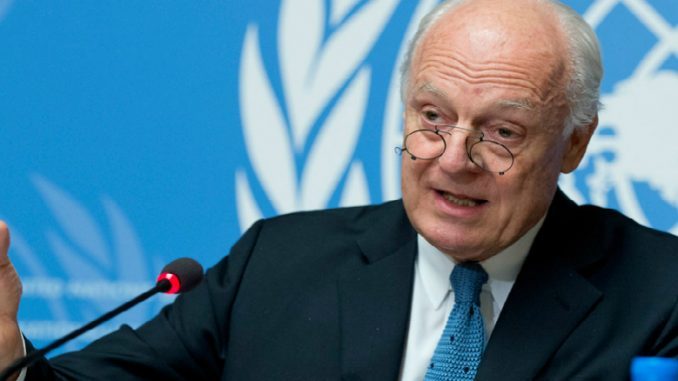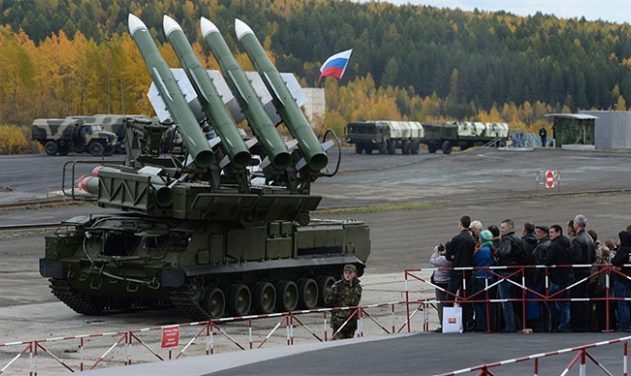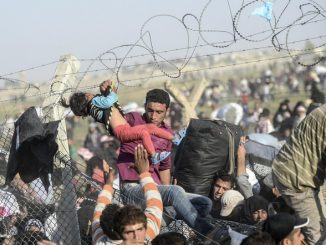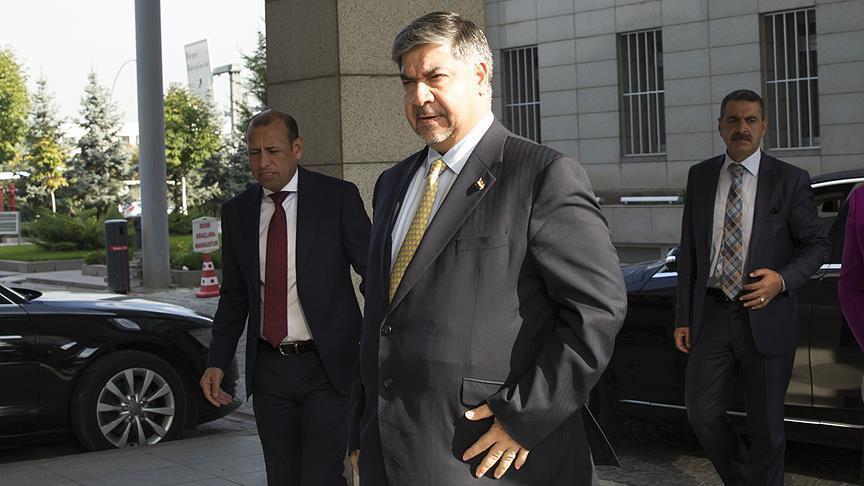
The office of the UN special envoy to Syria has declined to confirm whether a political transition in Syria will be discussed at the forthcoming talks in Geneva, in a change of language that the UN used to describe goals of these talks.
The development means Bashar al-Assad’s future will be off the agenda and the main focus of the talks among various Syrian factions will be governance, a new constitution, and elections.
Staffan de Mistura, the envoy, is due to convene the new round in the Swiss city on February 23, after peace settlement meetings were held in Astana and brokered by Russia, Turkey, and Iran.
Yara Sharif, spokeswoman for U.N. envoy Staffan de Mistura, initially told a regular U.N. briefing in Geneva on Friday that the talks, due to start on Feb. 23, would address the political transition.
“I think, yes, you can use the word ‘political transition’. It is going to be a focus I guess as it has been in the past,” she said in response to a reporter’s question.
But she later sent an email to clarify her comment.
“This morning at the briefing I was asked about the intra-Syrian negotiations and whether the issue of political transition would be discussed,” she said.
“For clarification purposes, please note that the negotiations will be entirely guided by (U.N.) Security Council Resolution 2254, which talks specifically about governance, a new constitution and elections in Syria.”
The December 2015 resolution was unanimously adopted as the basis for peace talks, which ran fitfully through the first months of 2016 but never resumed after the end of April.
The resolution says the U.N. Secretary-General should convene formal negotiations on “a political transition process on an urgent basis… with a view to a lasting political settlement of the crisis”. It also refers to previous international agreements which called for a transition.
But its description of the political process contains no mention of the phrase, setting out the aims as a new constitution, free and fair elections administered under supervision of the United Nations, and transparent and accountable governance.
A political solution in the only one possible
Countries opposed to Assad, including the US, back efforts by the UN to broker a political solution to the conflict, Sigmar Gabriel, Germany’s foreign minister, said on Friday.
“It is clear that all who met want a political solution … and that this political solution must be achieved in Geneva under the auspices of the United Nations and that there cannot be any parallel negotiations,” Gabriel said after a meeting in Bonn that included the US, Saudi Arabia, Turkey, France and Britain.
The countries were meeting for the first time since Donald Trump took office as US president in a bid to find common ground in advance of the Geneva meeting.
Gabriel said Rex Tillerson, the new US secretary of state, played an active role in the discussions about how to end the war in Syria, which took place on the sidelines of a meeting in Bonn, Germany, of G20 foreign ministers.
Tillerson, trying to reassure allies that the US was not tilting towards Russia over the Syrian conflict, told them that the US-backed UN efforts to broker a political solution to the war, officials and diplomats said.
He also said military ties with Russia depended on its stance towards rebels fighting the Assad government, who Russia backs.
Speaking alongside Gabriel, Jean-Marc Ayrault, France’s foreign minister, said the Geneva talks would ultimately fail if Russia did not use its influence on the Syrian government and Iran to stop labelling all those opposed to Assad as “terrorists”.
Political transition and the oppostiion’s demands
The Syrian opposition has always demanded that the political transition should be the key point in the peace talks efforts, as changing the regime is the first step in ending the war.
Salim al-Muslit, spokesman of the High Negotiations Committee (HNC), said the opposition was sticking to its position that President Bashar al-Assad can have no role in the transition, saying “the heavy price paid by the Syrian people” would have been wasted if he remained in power.
Muslit said the HNC, which includes rebel groups and political opponents of Assad, wanted to start the negotiations by discussing a governing body to oversee the transition.
“We want direct negotiations, we want to save time, we want a quick end to the suffering of the Syrian people,” said Muslit. But he said the opposition had yet to receive an agenda for the talks, which are due to begin on Feb. 23 following preliminary meetings beginning on Feb. 20.
Turkey, which has been a major supporter of the rebellion against Assad, has jointly brokered with Russia a ceasefire to pave the way for the talks.
Despite the ceasefire, Muslit said Assad and his allies were “still carrying out crimes” and he accused them of preparing a major assault against the rebel-held Ghouta region to the east of Damascus.
“We now want to get into the essence of the political process – the discussion of the political transition – and what the Geneva 1 communique stipulated about the formation of a transitional body with full powers,” Muslit said.
He was referring to the Geneva communique of 2012 calling for the establishment of a transitional governing body with full executive powers that could include members of the present government, the opposition and other groups. The communique said it should be formed on the basis of mutual consent.
The Syrian crisis began as a peaceful demonstration against the injustice in Syria. Assad regime used to fire power and violence against the civilians and led to armed resistance. 450.000 Syrians lost their lives in the past five years according to UN estimates, and more than 12 million have lost their homes.



